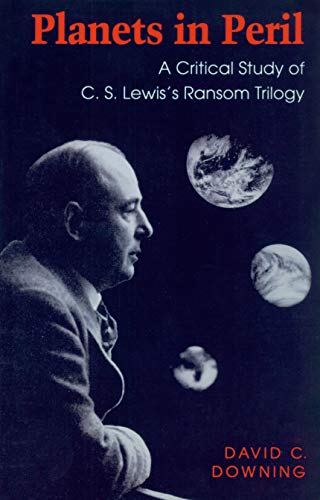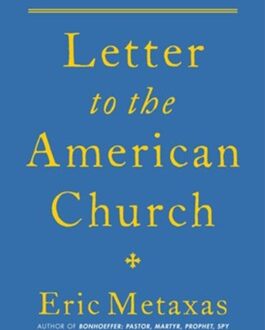Be not conformed
Yesterday, I revisited my favorite discussion of Lewis’s space trilogy, David Downing’s Planets in Peril. A book-length critical study, it draws together numerous perspectives on the novels, includes a lengthy bibliography, and gives a careful examination of the important themes, questions, literary techniques, allusions, and objections to the books. For example:
- Are the books marred by increasing violence as the series proceeds?
- Is Lewis a chauvinist?
- What do we make of difficult passages like the Arthurian elements at the end of That Hideous Strength, or the hymn at the end of Perelandra?
- What major influences from Lewis’s scholarship find their way into his imaginative vision, and how do they manifest themselves?
- Is Lewis reflexively anti-science?
It’s this last question that I’m focused on here, because I’ve never thought of Lewis as anti-science. Part of the reason these books have so transfixed me over the last few years is that they seem to speak so prophetically of trends we’ve seen play out through the Covid pandemic, trends in which the term “science” has been used to justify an unprecedented and crushing deployment of control over our minds, our speech, and even our bodies.
Downing gives a fair hearing to the complaints about how science, and scientists, are depicted in the trilogy, and he concedes that Lewis’s attitude toward science “is rooted partly in his personal dislike of most of the technological advances that occurred after his childhood.” However, he acknowledges that science is not really the target in the books, but rather “scientism” and “collectivism” — the use of science and technology to augment human abilities and “grope toward godhood.”
I think this is a fair summary, considering how few actual scientists there are in the NICE (National Institute of Coordinated Experiments), the scientific institution in That Hideous Strength. Only one, in fact: Bill the Blizzard, a distinguished chemist, who is murdered for leaving the Institute because he discovers it’s more about social control than actual science. Weston is the other scientist in the series, a brilliant but arrogant physicist who becomes consumed by the dream of dispersing humanity throughout the cosmos so the species will achieve, in effect, eternal life.
What corrupts true science in the stories is not the author’s bias against it but human fallenness, specifically in the form of totalitarian lust for power. This culminates in That Hideous Strength, in which the NICE is enacting a strategic plan to reduce the human population through, as one of its organizers explains,
sterilization of the unfit, liquidation of backward races (we don’t want any dead weights), selective breeding. Then real education, including pre-natal education. By real education I mean one that has no ‘take-it-or-leave-it’ nonsense. A real education makes the patient what it wants infallibly: whatever he or his parents try to do about it. Of course, it’ll be mainly psychological at first. But we’ll get to biochemical conditioning in the end and direct manipulation of the brain . . .
Though no one would put it this way today, much of this is already happening. We may not talk about “sterilization” or “liquidation” in this country, but we certainly have a dramatically increased advocacy of abortion at any time and for any reason, unprecedented medical tinkering with gender, and endless war. Like the fictional British society under the NICE, we’ve seen a steep upsurge in state-sponsored social unrest and violence, undermining of laws, and vilification of local law enforcement. We don’t talk about “biochemical conditioning” — except for hormone therapy in “gender transitions,” an experimental vaccine forced on a population, encouragement of addictive behaviors and refusal to take simple steps to block the increasingly pervasive supply of fentanyl. And the “real education” inflicted on “patients” (note the passive term) has been expanding for years through the steadily growing politicization and uniformity of perspective in our educational system at every level from kindergarten to the university. These phenomena are not grassroots developments working their way up, but top-down initiatives enforced by our highest power structures. The NICE would happily embrace them all.
But the most sobering development is the momentum building for the transhumanist dream of “improving” the human mind technologically. This idea is gruesomely parodied in the novel through the NICE’s preservation and, some of them believe, enhancement of a criminal’s severed head by artificial means. Interestingly, geneticist J.B.S. Haldane, a contemporary of Lewis who read his books (as Lewis read his) and once debated him at the Socratic Club, was one of the early figures in transhumanism as manifested in his book Daedalus. So many of the streams of thought coming to fruition today were already planted in 1945 when Lewis’s concluding novel in the trilogy appeared, and he was prescient about where they might be heading. Franklin Foer’s book World Without Mind (reviewed here) delineates the development of transhumanism through 2017, and since then the pace has continued to pick up. ChatGPT represents a quantum leap, not just in its technical capabilities, but in its galvanizing of the technology companies to “race” toward developing similar tools.
How strange that a novel from 1945 speaks so convincingly of our concerns today. Does this mean it’s an artistically fine work? Not necessarily. For instance, it doesn’t always succeed in weaving together Lewis’s intellectual or thematic materials. It’s hard to imagine someone not scratching their head at the appearance of Merlin, or the medieval-inspired cosmology (not exactly top of mind for most of us), or the violent final banquet. Yet I’m reminded again of how capricious our response to books can be. In the same way we might “love” a popular movie that the critics sneer at, we might devour a book we don’t even fully grasp because it speaks sharp truth about some aspect of our lives.
It’s this longing for truth — a longing thwarted again and again in our public life — that I pray will grow stronger and ultimately drive us to demand change. In the case of this trilogy, we’re given a happy ending that we can’t possibly reproduce, so the question we’re left with is how to respond when we observe disturbing trends gathering force and feel powerless to stop them. At the very least we can seek wisdom about what we buy or allow into our homes. We can teach our children to think, and encourage their natural love for truth. And we can celebrate the human mind, which my faith teaches me is stamped with the image of its Creator, and stand strong against the reductive notion that thought equals mere calculation or the accumulating of information.
Above all we can preserve our own sense of agency. Respectful nonconformity is a legitimate option for any thinking person.






